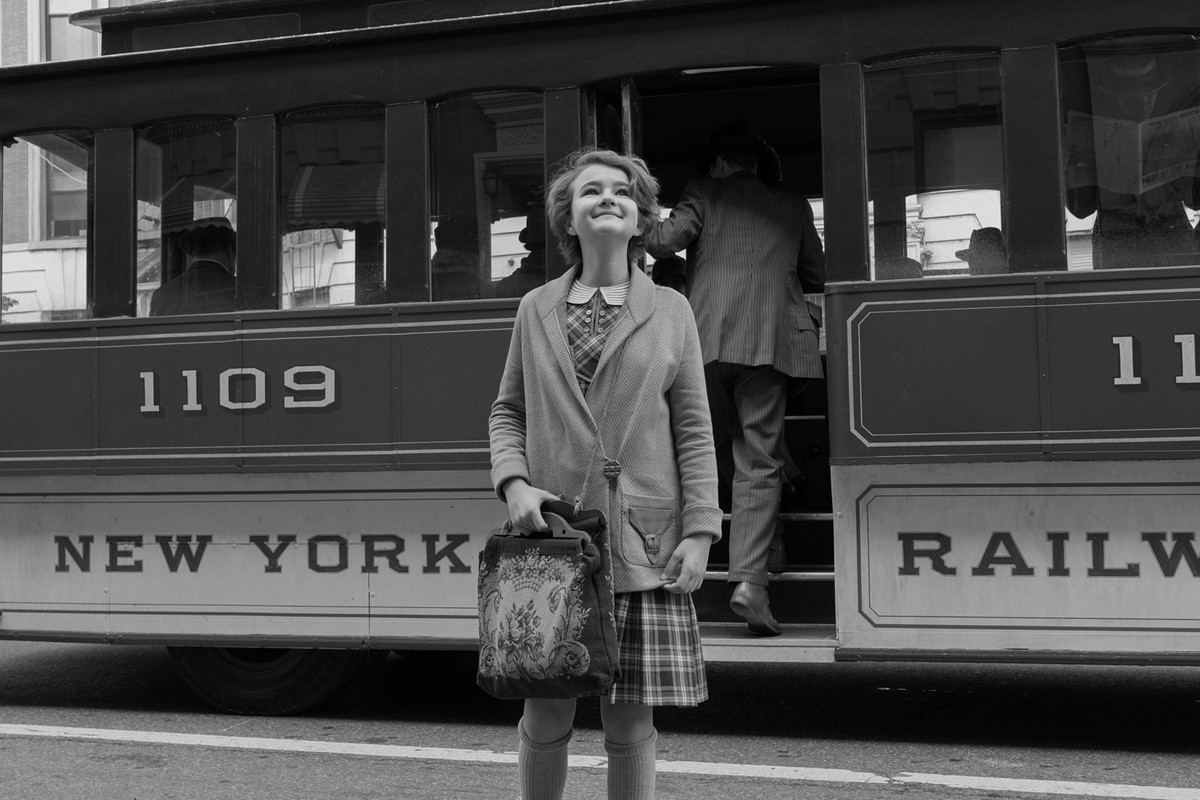You can be forgiven for thinking that Todd Haynes, a director known for decidedly adult fare like Safe, Carol, and Far From Heaven, is an odd choice to helm an adaptation of an acclaimed YA novel; you're kind of right. Wonderstruck, directed by Haynes from a script by original author Brian Selznick, has plenty of Haynes signifiers: Julianne Moore (this is her fourth film with Haynes), prominent use of a David Bowie song, and even a conspicuously placed album cover of Bob Dylan's Blonde on Blonde. (Haynes directed the Dylan pseudo-biopic, I'm Not There.) But the material feels altogether slight and very un-Haynes-ian. Thankfully, skilled direction and a knockout performance from newcomer Millicent Simmonds save Wonderstruck from being yet another forgettable YA adaptation.
In 1977, young Ben (Oakes Fegley) is mourning his mother Elaine (Michelle Williams), a librarian who died in a car accident. He finds a book in her room titled Wonderstruck, which is about "cabinets of wonder," precursors to modern museums. Inside the book is an inscription to his mother and a bookmark from a bookstore in New York. Ben tries calling the bookstore to try to track down his father — a topic that his mother avoided telling him about in life — and is promptly struck by lightning that travels through the telephone wire, rendering Ben deaf.
The film then divides its time between Ben's journey to the New York of 1977 to find his father and the tale of Rose (Simmonds), a deaf girl living in the New York of 1927. Rose is obsessed with silent movie actress Lillian Mayhew (Julianne Moore), keeping a scrapbook of clippings about the actress and sneaking away from home to see her films. Rose's sections of the film are shot in black-and-white and are dialogue-free — though not "silent," since the soundtrack provides auditory counterpoint to the images onscreen (similar to 2011's silent-era tribute, The Artist) — and they're the most compelling sections of Wonderstruck.
Ben's 1977 adventure, on the other hand, is wrapped in oversaturated color and noise, evoking a sweltering '70s New York summer. He ends up making a friend, Jamie (Jaden Michael), whose father works at the Museum of Natural History, giving him access to some records that further his search. But while Rose's depiction of deaf existence is enhanced by the fact that the audience can't hear any dialogue either, Ben's is muted by the opposite tactic. We can hear what people say to Ben, which results in moments where he seems like a capable lip-reader despite having been deaf for only a few days — except for when the plot demands that he not be able to understand those speaking to him.
The two storylines converge in the third act, resolving the mystery over Ben's parentage and its connection to Rose's story. But that revelation is more likely to make you shrug than provide any great insight into the characters. Wonderstruck feels like a film that has high aspirations, but it gets bogged down by the details. Or, as one of Ben's mom's favorite Oscar Wilde quotes put it, "We are all in the gutter, but some of us are looking at the stars."






